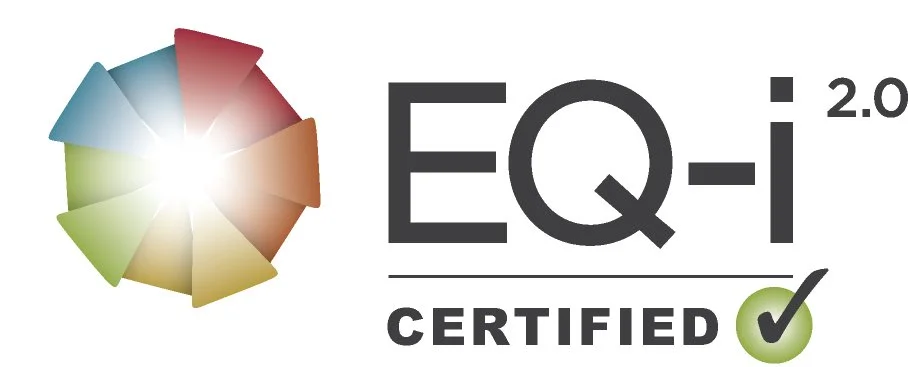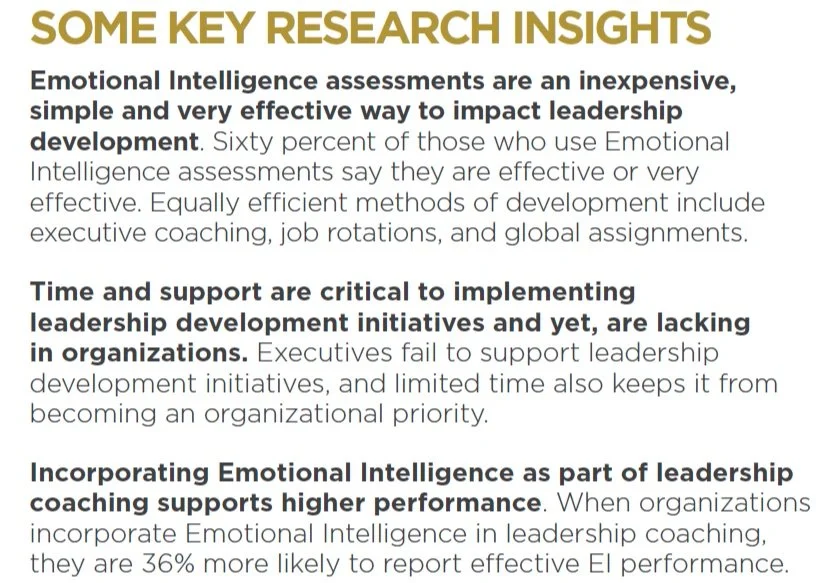Emotional Intelligence
What is Emotional Intelligence (EI)?
EI is a set of emotional and social skills that influence the way we perceive and express ourselves, develop and maintain social relationships, cope with challenges, and use emotional information in an effective and meaningful way.
Why is it important?
EI is proven to be a key indicator of human performance and development. People higher in EI communicate effectively, form strong relationships, and create powerful coping strategies. EI can be measured – more accessibly and less controversially than IQ – and unlike IQ, it can be substantially strengthened and developed.
Why Invest in EQ-i 2.0
All organizations are made up of multiple levels and MHS designed the EQ-i 2.0 Reports to target solutions at every level. This multi-level approach to developing emotional intelligence shows that developing EI at the individual level can impact team performance, which in turn influences the organization.
Organizations that spend a significant portion – 31% or more – of their Training and Development budgets on leadership development are 12% more likely to report increased revenue than those that spend less. *
*Research study is a collaborative effort between the Human Capital Institute (HCI) and MHS Assessments (MHS).
EQ-i 2.0 REPORT SUITE
-
Leadership Report -Individual
Every company has experienced instances where a leader within the organization shows strengths in core competencies necessary for the role but may be exhibiting EI blind spots of which peers are taking notice. Or, a company finds an employee that exhibits great work ethic and is an emerging star amongst his/her peers, while showing comparable traits to leaders within the organization. In both scenarios, the Leadership Report can be used when honing in on leadership development, executive development and coaching, and developing high potential leaders.
-
Leadership 360 - In-Depth Review
EQ 360 Reports provide in-depth analyses by having those who work with your employee and know your employee personally provide feedback in addition to your employee’s self-assessment.
Allowing for unlimited raters (Managers, Peers, Direct Reports, Friends and Family), these observer ratings are compared with the self-assessment in order to provide them with a 360-degree view of his/her effectiveness. These reports are designed to provide valuable insight and opportunities for development.
-
Group Report - Team Level
The Group report can be used regardless of whether a group works harmoniously with great collaboration and cohesion or finds itself with conflicting opinions and strategies that can affect the balance of a group. It can be used when looking for deeper insights into a group’s strengths as well as areas where the group can be more effective.
-
Workplace Report - Employee Development
The EQ-i 2.0 Workplace Report is designed to be used in instances of coaching and development situations in work settings for an individual at a non-management level – therefore, not from a leadership perspective but a general employee. It helps coaches focus on the impact of emotional intelligence at work and offers suggestions for working more effectively in one’s role, with colleagues, supervisors, and clients.
-
Workplace 360 - In-Depth Review
When working in an organization, it’s important to be cognizant of the impact of one’s actions on colleagues. Workplace EQ 360 can be used for results specific to a workplace context, enabling career and organizational development. It identifies blind spots, strengths, and developmental opportunities in the workplace.
Workplace EQ 360 Report allows unlimited raters to provide feedback and insights into development opportunities.
-
Higher Education
Working closely with students, it’s important to be able to leverage a tool that offers insights into a student’s potential for academic success. These reports identify emotional intelligence blind spots and strengths, fostering awareness and facilitating retention within their chosen field of study. Additionally, they aid in effective preparation for future career paths.
We can work with the students directly or with both students and their school counselors. Including their counselor adds additional support for them by providing them with a deeper understanding of your student’s emotional intelligence.




